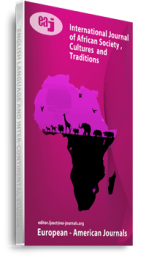Widowhood practices remain one of the enduring socio-cultural challenges confronting women in many African societies, with significant implications for their rights, dignity, and wellbeing. This study examined the impact of widowhood practices on the social, psychological, and economic wellbeing of women in Epie-land, Bayelsa State, Nigeria. Anchored on Feminist theoretical perspectives, the research investigated the extent to which cultural norms and traditional rites associated with widowhood shape women’s lived experiences. Data were sourced through qualitative method, including interviews, and focus group discussions with widows in Epie communities. Findings revealed that widowhood practices often result in social stigmatization, exclusion from community decision-making, and erosion of personal autonomy. Psychologically, widows face trauma, depression, and feelings of marginalization due to ritual humiliations and lack of social support. Economically, disinheritance, loss of property rights, and limited access to sustainable livelihoods further deepen poverty and dependence. The study argued that these practices not only violate women’s human rights but also undermine gender equality and community development. It concludes by recommending legal reforms, awareness campaigns, and community-based interventions to mitigate harmful practices and enhance the protection and empowerment of widows in Epie-land.
Keywords: Epie-land, Gender Equality, Human Rights, marginalization, widowhood

